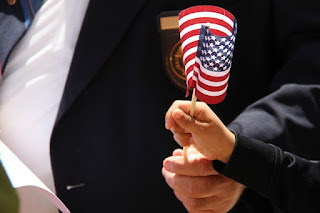Sometimes the severest wounds are invisible. Such is the case for those who struggle with post-traumatic stress disorder (PTSD). With Veterans Day on the near horizon, we must start a dialog about the behavioral and mental health disorders that plague many veterans.
Active servicemen and women and veterans are at higher risk of developing debilitating mood and substance use disorders compared to the general public. This is especially true for those who are subject to traumatic events. What’s more, individuals who experience trauma during active duty are apt to turn to drugs and alcohol if they lack the coping mechanisms for healthily dealing with their symptoms.
At Hope By The Sea, we have treated a large number of men and women whose combat service resulted in the development of PTSD and alcohol or substance use disorder subsequently. Mind-altering substances, prescribed or otherwise, can provide temporary symptom relief, but it’s fleeting. What begins as a means of escaping the symptoms of PTSD, anxiety, and depression can quickly morph into a co-occurring use disorder.
The good news is that dual diagnoses are treatable, and long-term recovery is possible. However, taking the first step toward healing is challenging for many of the people suffering. Mental illness stigmas and the United States military’s zero-tolerance substance use policies prevent active service members from seeking therapy. Pathologies persist and worsen; they follow men and women right into discharge and retirement.
While the U.S. Department of Veterans Affairs offers support services for veterans and their families, they are not easy to access in many parts of the country. Some people must drive hours to get to the nearest VA hospital, so many will opt to ignore their issues and the problems progress as a result.
Addiction and Co-Occurring PTSD
The U.S. Department of Veterans Affairs: National Center for PTSD reports that PTSD and substance use problems often go hand-in-hand with people who served in the military. The agency presents some startling statistics that cannot be ignored. Below are some of the more notable findings:
- More than 2 of 10 veterans with PTSD also have SUD.
- Almost 1 out of every 3 veterans seeking treatment for SUD also has PTSD.
- The number of veterans who smoke (nicotine) is almost double for those with PTSD (about 6 of 10) versus those without a PTSD diagnosis (3 of 10).
- In the wars in Iraq and Afghanistan, about 1 in 10 returning veterans seen in a VA hospital have a problem with alcohol or other drugs.
- War veterans with PTSD and alcohol problems tend to binge drink (4-5 drinks or more in 1-2 hours).
Seeking Recovery Saves Lives
When individuals live with untreated mental and behavioral health conditions for long periods, their disorders worsen. Some will become frustrated with living in persistent agony and experience suicidal ideations. Sadly, many will follow through with suicide.
Seeking recovery can dramatically alter such people’s life course. With help, men and women can learn how to manage their symptoms of PTSD without having to resort to drugs and alcohol. Moreover, they can also adopt a program of addiction recovery at the same time. Research shows that when people are treated for all presenting mental and behavioral health conditions, they stand a better chance of achieving lasting recovery. Failing to treat one disease can set people on a path to relapse at some point down the road.
At Hope By The Sea, we offer help for military personnel and their families too. Substance use and co-occurring disorders can develop in the loved ones of servicemen and women. The anxiety of having a spouse or parent in harm’s way can lead some family members to seek unhealthy means of coping.
Southern California TRICARE Addiction Treatment
Men and women who have or continue to serve in the military will be pleased to learn that Hope By The Sea accepts TRICARE. The insurance program extends to veterans, certain reserve members, and their families. If you or a loved one is struggling with PTSD and addiction, then please reach out to us immediately to learn more about our programs.
Hope by the Sea meets TRICARE’s extensive criteria for coverage, which means that we adhere to evidence-based treatment methodologies. Please contact us today to verify your insurance coverage, if approved, TRICARE coverage can significantly offset the cost of treatment. Hope By The Sea would like to wish veterans and their families Happy Veterans Day 2019.


